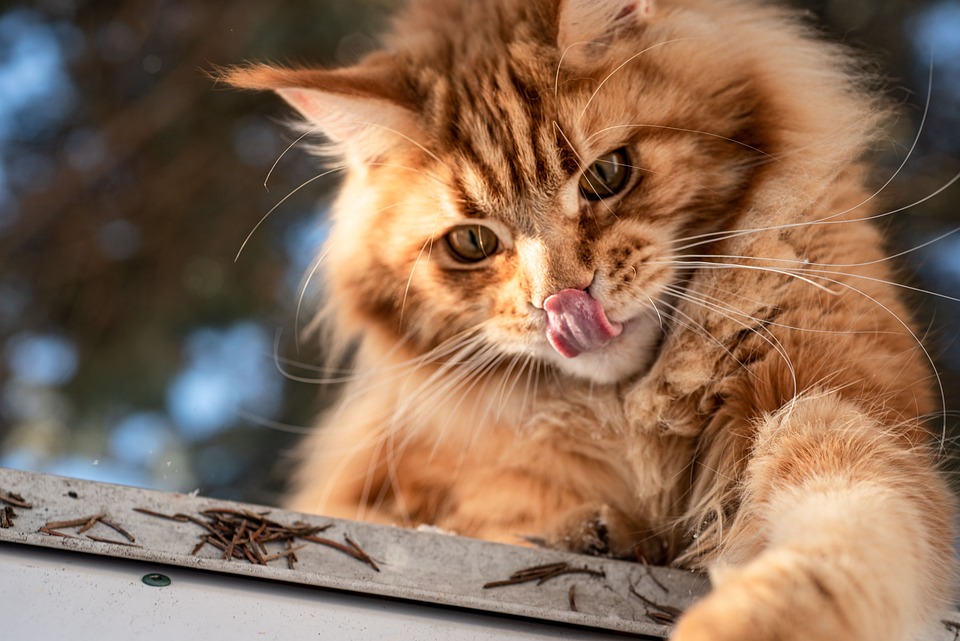Preventing and managing urinary tract infections (UTIs) in cats is crucial for their overall health and wellbeing. UTIs can cause discomfort, pain, and potentially lead to serious complications if left untreated. As a responsible cat owner, it is important to be aware of the preventive measures and management strategies to keep your cat’s urinary system healthy.
Understanding Urinary Tract Infections in Cats:
UTIs occur when bacteria or other pathogens enter the urinary system and multiply, causing inflammation and infection. Cats, especially males, are prone to UTIs due to their unique urinary anatomy. These infections can affect the bladder, urethra, or kidneys.
Common signs of UTIs in cats include frequent urination or straining to urinate, blood in the urine, urinating outside the litter box, crying or vocalizing while urinating, and lethargy with decreased appetite.
Preventive Measures for Urinary Tract Health:
1. Provide Ample Fresh Water: Encourage your cat to drink plenty of water by offering clean, fresh water in multiple locations throughout your home. Cats on a dry food diet can benefit from additional moisture in their diet, so consider incorporating wet food or adding water to their kibble.
2. Maintain a Clean Litter Box: Ensure that you have enough litter boxes for your cat(s) and keep them clean. A dirty litter box can lead to bacterial growth and increase the chances of UTIs. Scoop the litter box daily and replace the litter regularly.
3. Promote Regular Urination: Allow your cat to have access to multiple litter boxes in different areas of your home. This encourages frequent urination and helps prevent the formation of crystals or stones in the urinary tract.
4. Minimize Stress: Cats are sensitive creatures, and stress can contribute to UTIs. Create a calm and stress-free environment for your cat by providing hiding spots, vertical spaces, and a routine that they can rely on.
Managing Urinary Tract Infections:
If your cat develops a UTI, prompt veterinary care is crucial. Your veterinarian will perform a thorough examination and may request a urine sample to determine the type of infection and prescribe appropriate treatment. In addition to prescribed medication, the following management strategies can aid in your cat’s recovery:
1. Administer Medication as Directed: It is essential to follow your veterinarian’s instructions regarding the dosage and duration of prescribed antibiotics or other medications. Completing the full course of treatment is crucial to ensure the infection is fully eradicated.
2. Encourage Increased Water Intake: Diluting your cat’s urine can help flush out bacteria and reduce inflammation. Consider adding water fountains or offering wet food to entice your cat to drink more water.
3. Monitor Litter Box Behavior: Keep a close eye on your cat’s litter box habits during and after treatment. Report any changes or concerns to your veterinarian promptly.
4. Consider Urinary Health Diets: Some specialized cat foods are formulated to support urinary tract health. Discuss with your veterinarian whether a dietary change may be beneficial for your cat’s specific condition.
FAQs about Urinary Tract Infections in Cats:
1. Can urinary tract infections in cats be prevented through diet alone?
While diet plays a role in maintaining urinary tract health, it is just one component of a comprehensive preventive approach. Adequate hydration, keeping a clean litter box, and minimizing stress are equally important in preventing UTIs.
2. Are male cats more prone to urinary tract infections?
Yes, male cats have a narrower urethra, making them more susceptible to urinary blockages caused by crystals or stones. Prompt veterinary attention is crucial if you notice any symptoms of a UTI in your male cat.
3. Can stress really contribute to urinary tract infections?
Yes, stress can weaken a cat’s immune system, making them more susceptible to infections, including UTIs. Minimizing stress through environmental enrichment and routine can help maintain urinary tract health.
4. Is it necessary to take my cat to the veterinarian for every urinary issue?
If you notice any signs of a UTI or changes in your cat’s urinary habits, it is essential to consult with a veterinarian. They can properly diagnose the issue and provide appropriate treatment. Ignoring urinary issues can lead to serious complications.
By following preventive measures and promptly addressing any urinary issues, you can help prevent and manage urinary tract infections in your beloved feline companion. Remember, a healthy urinary tract leads to a happy and contented cat!








